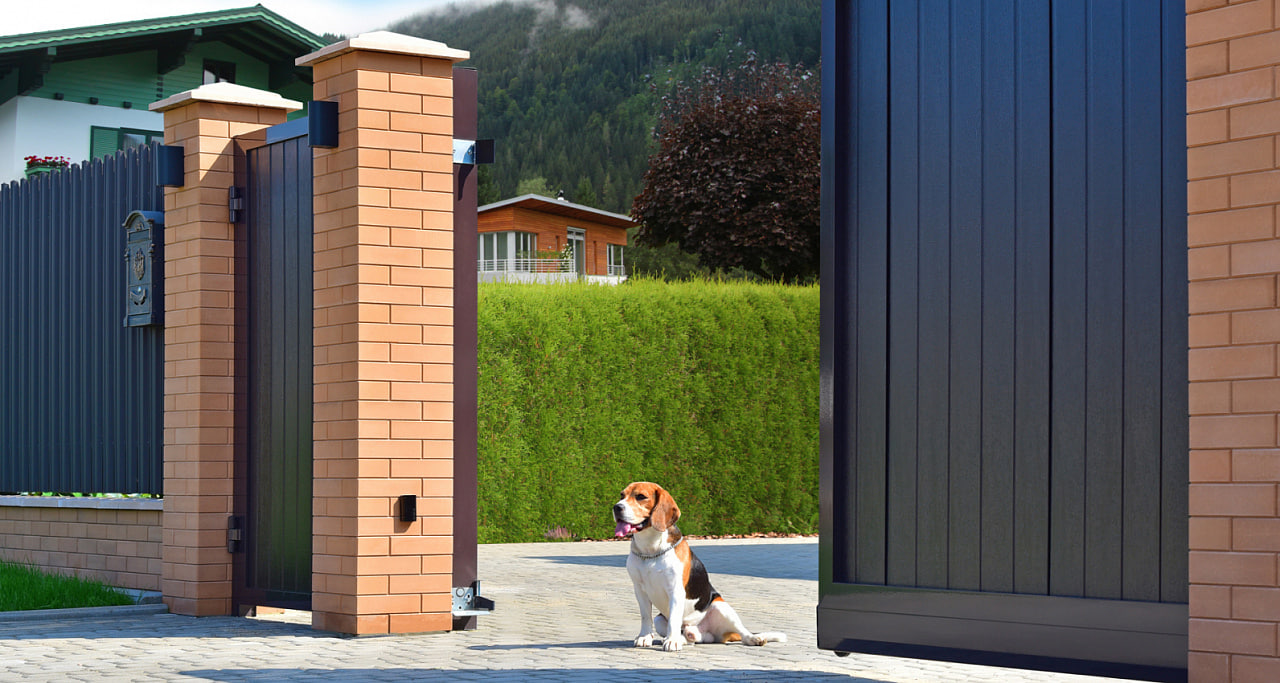
Choosing between sliding and swing gates for your site: what you need to know
Sliding gates:
Sliding gates have horizontal movement along a fence or wall. They consist of one or two doors that slide along guides installed on the ground or underground. Here are some key benefits of sliding gates:
Advantages:
Space saving: Sliding gates are ideal for areas with limited space at the entrance. They do not require a large free area to open and close, since the doors simply roll along the fence.
Ease of use: Sliding gates are easy to open and close using an automatic drive. This is especially convenient when entering the site by car, since you can open the gate without leaving the car.
Great Durability: Sliding gates are usually made from strong materials such as steel or aluminum, making them durable and reliable.
Wind protection: Closed sliding gates act as a wind barrier, which is especially useful on windy days.
Flaws:
Requires a flat surface: To install sliding gates, a flat surface is required so that the doors can slide freely along the guides. If you have an uneven or unprepared driveway, installing a sliding gate may require additional preparation.
High cost: Unlike swing gates, sliding gates can be more expensive to install due to the complexity of the mechanism and track requirements.
Swing gates:
Swing gates open outward or inward by rotating around a vertical axis. They consist of two doors that can open either together or separately. Here are some advantages and disadvantages of swing gates:
Advantages:
Versatility: Swing gates can be installed on areas with various types of surfaces, including uneven terrain. They do not require a level surface for installation, which makes them more versatile in choosing an installation location.
Lower Cost: Swing gates typically cost less than sliding gates because their mechanisms are simpler and require fewer materials.
Flaws:
Requires more free space: Swing gates require sufficient space in front of the entrance to open and close the leaves. If you have limited space in front of your driveway, swing gates may not be the best choice.
Limited speed: Swing gates take longer to open and close because each leaf must rotate around a vertical axis. This can be inconvenient if you need to quickly enter or exit the property.
Conclusion:
When choosing between sliding and swing gates, you need to take into account the characteristics of your site, your needs and preferences. If you have limited space at your driveway, a sliding gate may be a better choice. They offer ease of use and durability, but can be more expensive and require a flat surface to install. Swing gates, on the other hand, are more affordable and can be installed on a variety of surface types, but require more space and are limited in speed.
Before making a final decision, it is recommended to consult with PF ASVA professionals who specialize in installing gates in order to receive individual recommendations and take into account all the features of your site.

